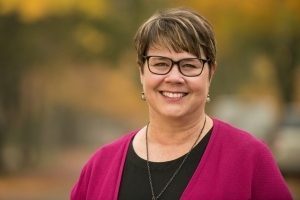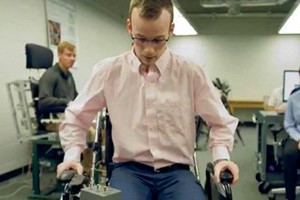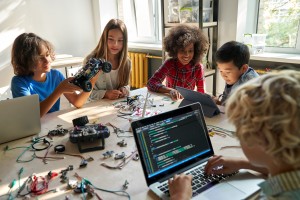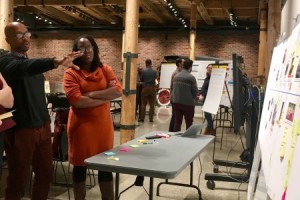
Laurie Van Egeren, Interim Associate Provost for University Outreach and Engagement
MSU's 2030 Strategic Plan Strengthens Commitment to Community Engagement
Dear Engaged Spartans and our partners in Michigan and around the world,
At the beginning of the 2021-2022 academic year, Michigan State University unveiled a bold new vision in the MSU 2030 Strategic Plan.
Twenty months in the making, the ambitious plan launches MSU on a trajectory that will expand opportunity, advance equity, elevate excellence, strengthen community, and foster stewardship. Far from mere visionary rhetoric, the MSU 2030 Strategic Plan, conceived by a diverse group of faculty, staff, students, administrators, and trustees, lays out specific, tangible ways in which MSU will enact these qualities across its mission.
The MSU 2030 Strategic Plan identifies six themes: student success; staff and faculty success; innovation for global impact; sustainable health; stewardship and sustainability; and diversity, equity, and inclusion ...
Read more
Featured MSU Engaged Scholars

- Tamara Reid Bush, Ph.D.
- Interim Chair and Professor, Department of Mechanical Engineering
- College of Engineering
For individuals who are wheelchair dependent, pressure injuries are common and can be a major deterrent to enjoying a high quality of life. These injuries are typically caused by a constant force being applied to the skin and tissues beneath the skin. In collaboration with individuals affected by these injuries, Tamara Reid Bush, professor and interim chairperson of MSU's Department of Mechanical Engineering, and her research team are using their knowledge of biomechanical design to create a wheelchair to ultimately prevent these life-threatening wounds from ever forming.
Before delving into the redesign of wheelchairs, Bush and her team were first approached by Adient, formerly Johnson Controls, a leading maker of innovative automotive seating ...
READ MORE

- Hee Rin Lee, Ph.D.
- Assistant Professor, Department of Media and Information
- College of Communication Arts and Sciences
Human-robot interaction has long been an interest of Hee Rin Lee, assistant professor with the College of Communication Arts and Sciences at MSU. For Lee, the concept of positively combining human work with artificial intelligence (AI) through the use of robots, began while observing individuals in manufacturing plants. She found in these settings, robots have a high chance of replacing human workers, leaving production workers out of employment.
"Researchers in robotics are often intent on exploring the vast opportunities new technology can provide, but don't necessarily consider the potentiality of negative influences," Lee said. "My initial research focused on confronting detrimental consequences of new technologies on production workers." ...
READ MORE

- Steven Gray, Ph.D.
- Associate Professor, Department of Community Sustainability
- College of Agriculture and Natural Resources
Food agency—the ability to choose and acquire food that we like and that is healthy—is something many take for granted. But for some, enjoying a variety of food options may not be so easy. Lack of access, availability, resources, or transportation can cause some city residents to experience "food apartheid," a situation in which they are entrapped by dependence on emergency or supplemental food systems. For many urban areas, food access is an ongoing problem hovering at a tipping point.
Many local Flint experts, residents, and stakeholders are collaborating with a group of MSU researchers, led by Steven Gray, associate professor with the Department of Community Sustainability (CSUS), to discuss and model the city's food systems ...
READ MORE